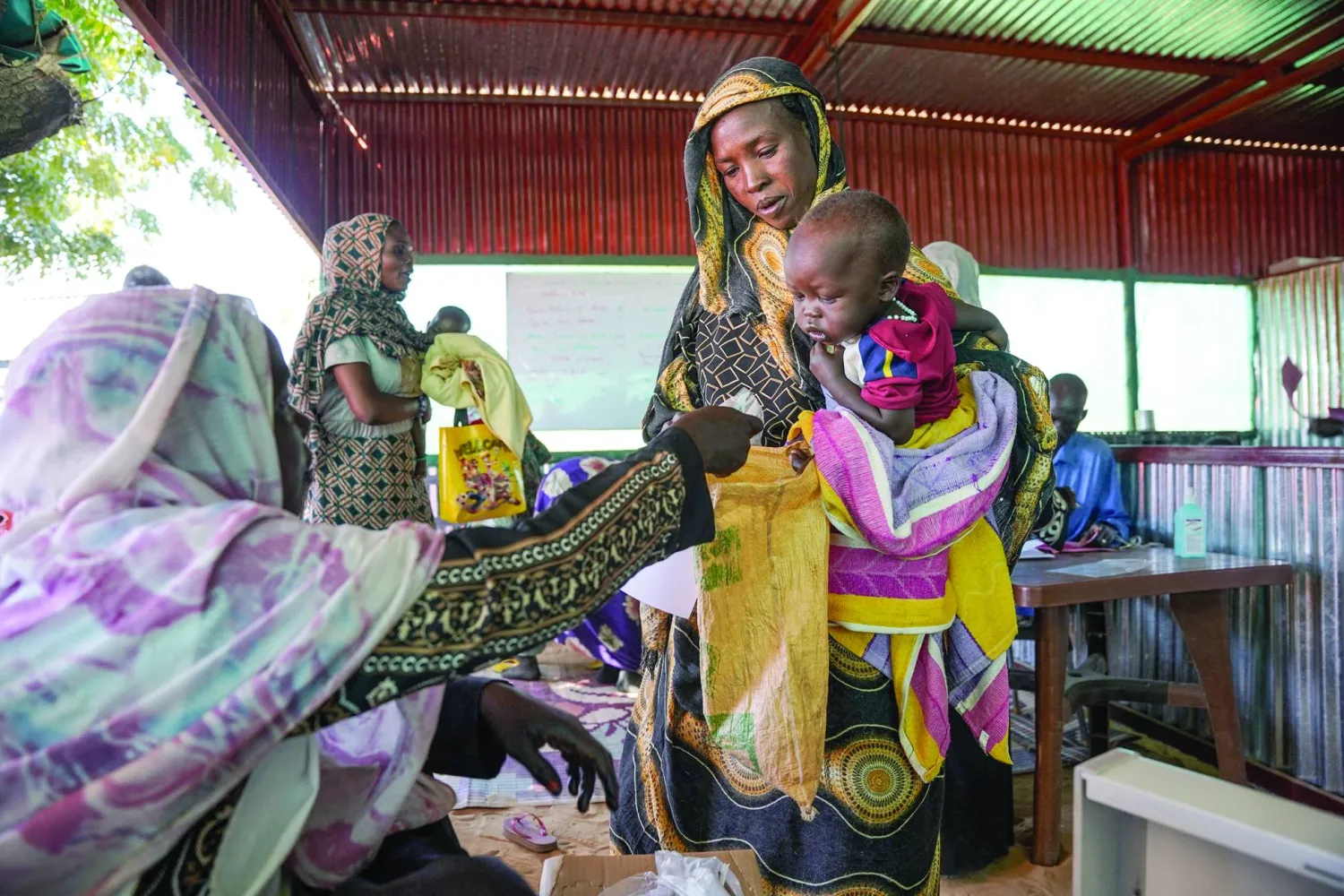There is a realistic chance of famine in 14 areas across Sudan if the war that began in April last year escalates, a global monitor said on Thursday, in a sharply worsening hunger crisis that the World Food Program called the world's largest.
The areas listed by the Integrated Food Security Phase Classification (IPC) as at risk of famine are those that have seen the heaviest fighting: the capital Khartoum, the regions of Darfur and Kordofan, and El Gezira state.
It said the findings marked a "stark and rapid deterioration of the food-security situation" in Sudan since December, and the worst levels of hunger observed in the country since the IPC was formed 20 years ago.
According to the assessment, the number of people experiencing a hunger crisis rose by 45% to 25.6 million, or more than half the population, in the lean season lasting to September, when less harvested food is available.
Some 8.5 million people - nearly a fifth of the population - face food shortages that could result in acute malnutrition and death or require emergency coping strategies. As previously reported by Reuters, some 756,000 people are projected to be in "catastrophe", the most severe level of extreme hunger, up from zero in December.
"This disaster is man-made and was preventable," Mohammed Qazilbash, Sudan country director for humanitarian group Plan International, said in a statement.
"Our time to act was six months ago – it is unconscionable that there are now more than 8 million people on the brink of famine."
War between Sudan's army and the Rapid Support Forces (RSF) erupted more than 14 months ago in the capital, and quickly spread to other parts of the country.
It has triggered ethnically-driven violence in the western region of Darfur, caused the world's biggest internal displacement crisis and split control of the country between the rival camps.
A hunger crisis, which the WFP said on Thursday was the worst in the world, has already pushed some Sudanese to eat leaves and soil. A Reuters report last week included analysis of satellite imagery that showed cemeteries expanding fast as starvation and disease spread.
MILITIA RISK
The IPC is a collaboration that includes UN agencies, national governments and aid groups, and is the main global system for measuring the severity of food crises.
Its most extreme warning is Phase 5, which has two levels, catastrophe and famine.
Famine can be declared if at least 20% of the population in an area suffers catastrophic food shortages, with at least 30% of children acutely malnourished and two people out of every 10,000 dying daily from starvation or malnutrition and disease.
Since the IPC's creation, famines have only been declared twice - in parts of Somalia in 2011 and in parts of South Sudan in 2017.
In Sudan, the IPC said famine could occur with reasonable probability under a worst-case scenario that includes the escalation of fighting and the involvement of local militias.
Fighting has recently been heavy in several parts of the country. This week, the RSF staged an incursion into Sennar state and took over another state capital.
FOREIGN BACKERS 'COMPLICIT'
The 14 areas that the IPC said were at risk of famine include Tuti Island on the Nile and the working-class Mayo district of Khartoum; Madani, the trade hub capital of Gezira; and the besieged city of al-Fashir in North Darfur.
It also includes displacement and refugee camps around Nyala, capital of South Darfur, and in West Darfur and South Kordofan. Most of the areas have been controlled or attacked by the RSF.
On Wednesday, UN experts accused both rival factions of using food as a weapon of war by blocking, looting and exploiting humanitarian assistance. Both sides have denied impeding aid.
"Foreign governments providing financial and military support to both parties in this conflict are complicit in starvation, crimes against humanity and war crimes," the UN experts said in a statement.
They also called on the United Nations and international donors to rethink their approach and boost support for local humanitarian networks and volunteers "risking their health and lives and working across battle lines".
Sudan Faces Famine Risk in 14 Areas

FILE PHOTO: A handout photograph, shot in January 2024, shows a woman and baby at the Zamzam displacement camp, close to El Fasher in North Darfur, Sudan. MSF/Mohamed Zakaria/Handout via REUTERS/Files

Sudan Faces Famine Risk in 14 Areas

FILE PHOTO: A handout photograph, shot in January 2024, shows a woman and baby at the Zamzam displacement camp, close to El Fasher in North Darfur, Sudan. MSF/Mohamed Zakaria/Handout via REUTERS/Files
لم تشترك بعد
انشئ حساباً خاصاً بك لتحصل على أخبار مخصصة لك ولتتمتع بخاصية حفظ المقالات وتتلقى نشراتنا البريدية المتنوعة







